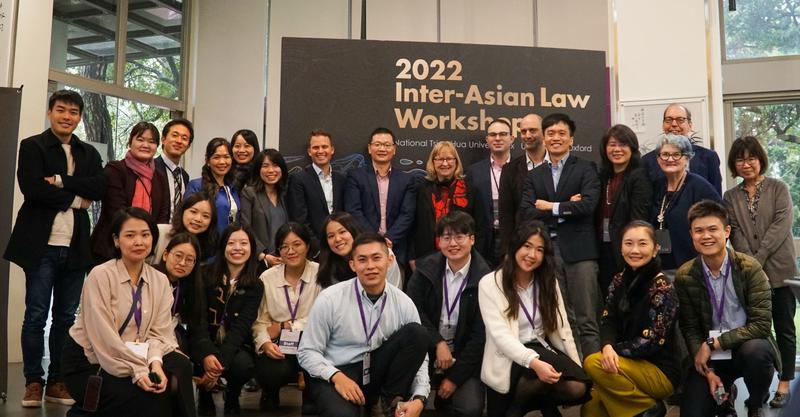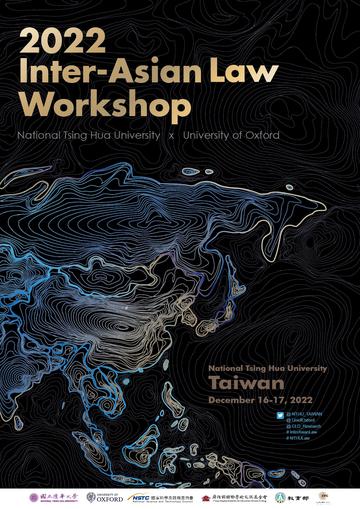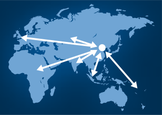2022 Inter-Asian Law Workshop
December 16-17, 2022
National Tsing Hua University
Hosted by Professor Ching-Fu Lin, National Tsing Hua University, and Professor Matthew Erie, CLD project, University of Oxford.

"Inter-Asian Law” (IAL) refers to a coalescence of diverse areas of scholarly inquiry, including law, the social sciences, and humanities that, collectively, point to an emerging field of comparative law that explores the legal interactions—historical and contemporary—between and among Asian jurisdictions. These interactions lead to a number of important formations, including empire, legal transplantation, law and development, multilateralism and trade blocks, global value chains, transnational orders, judicial networks, and legal educational exchange, to name a few.
IAL is particularly relevant given the economic and geopolitical importance of a number of key Asian states including Japan, Singapore, South Korea, China, Taiwan, and India. These jurisdictions are both learning from each other through law and, in the process, reconfiguring the substance and procedure of a number of areas of law in the region and posing ramifications that are felt well beyond the Asian region. In parallel, a number of Asia-based multilateral platforms including the UN Convention on International Settlement Agreements Resulting from Mediation and the Regional Comprehensive Economic Partnership not to mention the Shanghai Cooperation Organization and the Belt and Road Initiative are further shaping both international law and the law of member states. The salience of these countries, their multilateral organizations, the dynamic flows of law, capital, and actors, and the region as a whole generates legal creativity that warrants interdisciplinary research through case studies, empirical approaches, historical analysis, and other methods of comparative law.
IAL spotlights not only comparative law, but also international law, law and history, and law and society. More specifically, IAL touches on such fields as inter alia constitutional law, labor, property, contract, trade and investment, dispute resolution, data governance, law and technology, civil and criminal procedure, human rights, gender, and law and religion. Epistemologically, IAL asks what it means if Asia and not the West is the referent for Asia’s own legal modernity.

Presentations
Panel 1: International Economic Law
- Transforming the ASEAN Way: The RCEP and Beyond, Pasha Hsieh, Singapore Management University
- ADR for Commercial Disputes in Asia: Taking Stock and Looking Forward, Tran Hoang Tu Linh, Ho Chi Minh City University of Law
- Inter-Asia’s Company Towns, Trang (Mae) Nguyen, Temple University
- Withstanding the Rise of Illiberalism: Lessons from the Covid-19 Pandemic Responses in Taiwan, South Korea and Singapore, Wen-Chen Chang, National Taiwan University & Yi-Li Lee, National Tsing Hua University
- Looking Beyond Marbury: Judicial Self-Empowerment in Asia, Yvonne Tew, Georgetown University
Panel 3: Emerging Challenges: Science and Technology
- Artificial Intelligence Governance in Asia: Mapping Context, Dynamics, and Resilience, Ching-Fu Lin, National Tsing Hua University
- The “Smart City” Debate: Exploring Asian Models of Smart Cities, Yoshiko Naiki, Nagoya University
- Autonomous Vehicles, Ride-share Services, and Civil Liability: A Japanese Perspective, Gen Goto, University of Tokyo
Panel 4: The China Question
- A Chinese Model of Law for Asia?, Jacques deLisle, University of Pennsylvania
- The Travels and Travails of Chinese Law in Inter-Asia, Matthew Erie, University of Oxford
Panel 5: Regulatory & Procedural Law
- Lay Participation in Legal Decision Making in Asia in a Global Context, Valerie Hans, Cornell University
- Asia's Pandemic Preparedness and Response: From Embryonic to an Integrated Approach, Bryan Mercurio, Chinese University of Hong Kong
- The Regulatory Turn to ‘Asia’, Veronica Taylor, Australian National University



